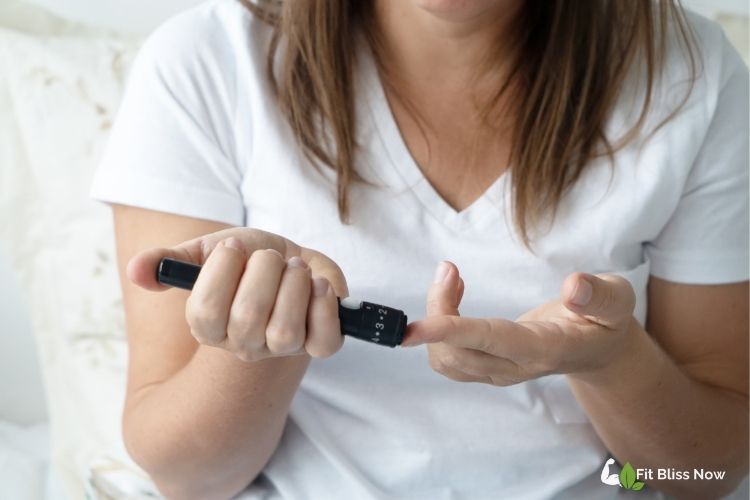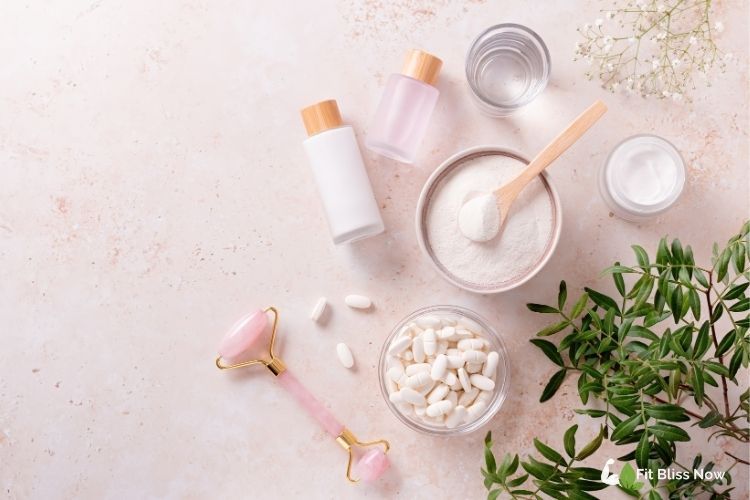Discover simple, natural ways to balance your hormones daily. Support your body with nutrition, stress relief, better sleep, and hormone-friendly habits.
Hormones control nearly every process in your body—from metabolism and sleep to mood, energy, and reproduction. When your hormones are in balance, you feel energetic, emotionally stable, and mentally clear. But when they’re off, the symptoms can be frustrating: fatigue, weight gain, mood swings, brain fog, skin issues, irregular periods, or low libido.
While medical treatment is sometimes necessary, many people can improve their hormonal health through natural lifestyle changes. In this guide, we’ll explore proven and holistic ways to balance hormones naturally—without relying on synthetic hormones or harsh medications.
Understanding Hormonal Imbalance

Understanding Hormonal Imbalance
Hormones are chemical messengers produced by glands in the endocrine system. They help regulate:
Mood and stress levels (cortisol, serotonin)
Blood sugar (insulin)
Energy and metabolism (thyroid hormones)
Reproduction and menstrual cycles (estrogen, progesterone, testosterone)
Sleep-wake cycles (melatonin)
When just one hormone becomes unbalanced, it can trigger a cascade that affects the whole system. Common causes include:
Chronic stress
Poor diet and blood sugar imbalance
Sleep disturbances
Exposure to toxins
Overtraining or lack of physical activity
Gut health issues
Let’s explore natural hormone-balancing tips that can help bring your body back into alignment.
1. Prioritize Sleep for Hormonal Regulation

Understanding Hormonal Imbalance
leep is when your body resets and regenerates. Poor sleep affects cortisol, insulin, melatonin, and reproductive hormones.
Tips for better sleep:
Stick to a consistent bedtime
Avoid screens 1 hour before bed
Keep your room cool and dark
Try a calming tea like chamomile or lemon balm
Aim for 7–9 hours per night
Even one week of poor sleep can disrupt your hormone balance. Quality sleep is foundational to hormonal harmony.
2. Eat Hormone-Balancing Foods

Eat Hormone-Balancing Foods
Food is information for your hormones. The right nutrition helps reduce inflammation, balance blood sugar, and support liver detox (which clears excess hormones like estrogen).
Key hormone-balancing foods:
Leafy greens (spinach, kale): rich in magnesium and fiber
Healthy fats (avocado, olive oil, fatty fish): needed for hormone production
Cruciferous vegetables (broccoli, cauliflower, Brussels sprouts): support estrogen detox
Fiber-rich foods: help remove excess estrogen via the digestive system
Protein (chicken, eggs, legumes): supports satiety and metabolism
Seeds (flax, pumpkin, sesame, sunflower): support estrogen and progesterone (see “seed cycling”)
Avoid: Refined sugar, excessive caffeine, trans fats, and processed carbs, which spike insulin and promote inflammation.
3. Manage Stress to Reduce Cortisol Overload

Understanding Hormonal Imbalance
Chronic stress is one of the biggest hormone disruptors. High cortisol can interfere with sleep, increase belly fat, throw off reproductive hormones, and even suppress thyroid function.
Natural stress-reducing techniques:
Mindfulness meditation
Breathing exercises (try box breathing or 4-7-8)
Nature walks or grounding (barefoot on grass)
Journaling
Creative hobbies (drawing, music, etc.)
Adaptogenic herbs like ashwagandha or rhodiola (consult your doctor first)
Creating a daily “pause” practice can significantly lower cortisol and bring your system back into balance.
4. Balance Blood Sugar Levels

Understanding Hormonal Imbalance
Blood sugar swings cause insulin spikes, which affect cortisol, estrogen, testosterone, and even thyroid hormones. This is why stabilizing blood sugar is key for natural hormone balance.
Tips:
Eat protein and healthy fat with every meal
Avoid skipping meals
Limit refined sugar and processed carbs
Opt for complex carbs (sweet potato, brown rice, oats)
Walk after meals to reduce glucose spikes
Bonus: Stable blood sugar also reduces cravings and mood swings.
5. Support Gut Health
Your gut and hormones are deeply connected. The gut microbiome helps metabolize and eliminate excess hormones, especially estrogen.
How to support gut health:
Eat probiotic-rich foods (yogurt, kefir, sauerkraut, kimchi)
Include prebiotic foods (garlic, onion, bananas, asparagus)
Avoid antibiotics unless necessary
Chew food thoroughly and eat slowly
Stay hydrated
A healthy gut = healthy hormones.
6. Get Daily Movement (But Don’t Overdo It)

Understanding Hormonal Imbalance
Exercise is essential for hormone balance, but over-exercising can spike cortisol and disrupt reproductive hormones.
Best forms of movement for hormone health:
Walking
Strength training (2–3x per week)
Yoga or Pilates
Dance or stretching routines
Rebounding (gentle mini-trampoline workouts for lymph flow)
Listen to your body. Rest is just as important as movement.
7. Use Natural Herbs and Supplements Wisely
Some herbs and nutrients can help restore hormonal balance naturally—but always check with a healthcare provider first.
Common hormone-supportive herbs:
Ashwagandha: helps reduce cortisol and boost thyroid function
Maca root: supports libido, energy, and hormonal balance
Vitex (Chasteberry): supports progesterone and menstrual regularity
Magnesium: calms the nervous system and supports hormone production
Omega-3s: reduce inflammation and support insulin sensitivity
Vitamin D: regulates mood and supports reproductive hormones
Tip: Choose high-quality supplements and avoid self-diagnosing. Lab testing can help guide you.
8. Limit Hormone-Disrupting Toxins

Understanding Hormonal Imbalance
Certain chemicals mimic hormones and interfere with your endocrine system.
Reduce exposure to:
Plastics (use glass or stainless steel instead of BPA-lined containers)
Fragrances (in candles, air fresheners, personal care products)
Parabens and phthalates in cosmetics
Non-stick cookware (opt for cast iron or stainless steel)
Conventional cleaning products (switch to natural brands)
Small swaps add up over time and reduce your hormonal burden.
9. Sync with Your Menstrual Cycle (for Women)
Tracking your cycle and syncing your lifestyle can support better hormonal balance.
Cycle-syncing tips:
Follicular phase (Day 1–14): Focus on energy-boosting workouts and lighter meals.
Luteal phase (Day 15–28): Shift to strength training, grounding foods, and more rest.
Menstruation: Prioritize rest and gentle movement like yoga or walking.
Being in tune with your natural rhythm can help ease PMS and regulate your cycle.
Conclusion: Balance Is Built Daily
Balancing your hormones doesn’t happen overnight, but with daily attention to nutrition, sleep, movement, and stress, you can begin to feel more energized, clear-headed, and emotionally grounded.
Whether you’re navigating PMS, fatigue, acne, or mood swings, these natural hormone-balancing tips offer a powerful foundation for healing. Listen to your body, stay consistent, and support your system with the care it needs—hormonal harmony is within reach.


